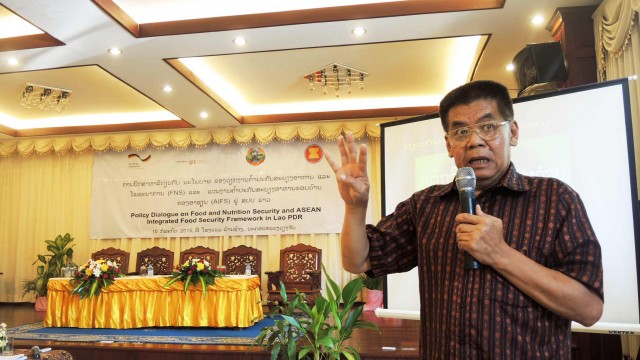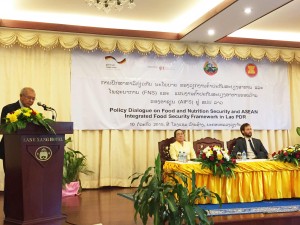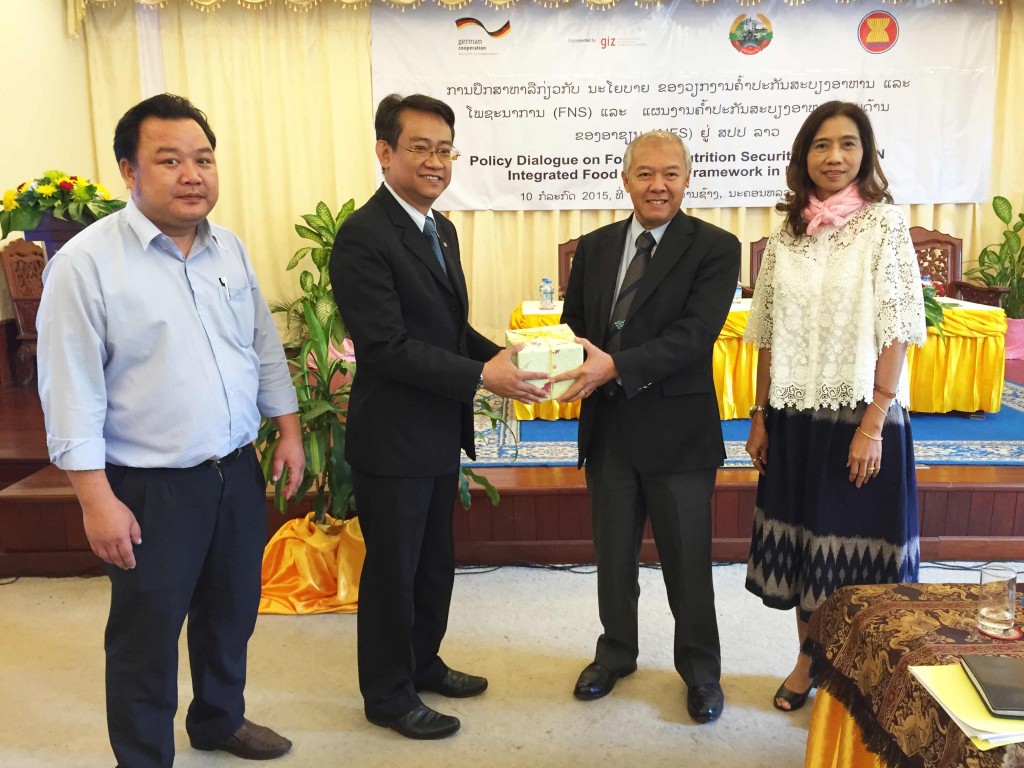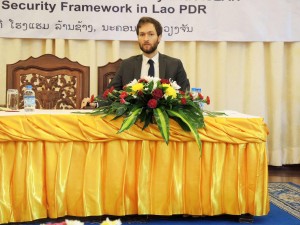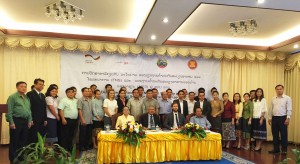Training strengthens capacity of government officials in supporting food and nutrition security policies and strategies in Thailand
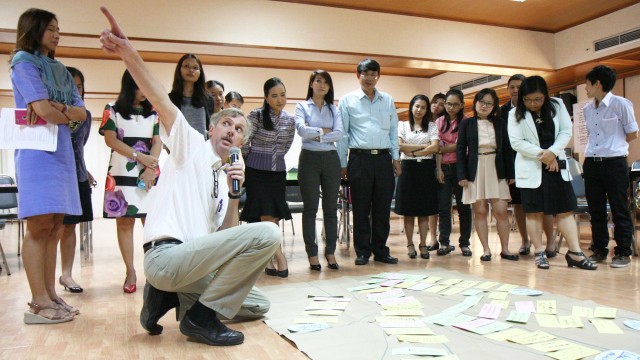
Thai government officials better fit themselves in food and nutrition security development after the ‘Training on Food and Nutrition Security in Thailand’ co-organized by Department of Agriculture, Office of Agricultural Economics and German-ASEAN Sustainable Agrifood Systems (ASEAN SAS) on 12-16 October 2015.
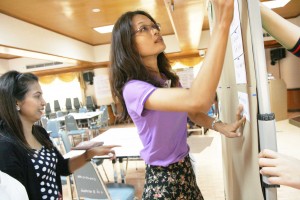 Over 20 participants of 11 government offices from line Ministries, including the Ministry of Agriculture and Cooperatives and Ministry of Health recently attended the Bangkok training. The Training aimed to enhance knowledge and understanding on food and nutrition security and strengthen capacity of government personnel for effective and efficient implementation of policies and strategies on food and nutrition security in Thailand.
Over 20 participants of 11 government offices from line Ministries, including the Ministry of Agriculture and Cooperatives and Ministry of Health recently attended the Bangkok training. The Training aimed to enhance knowledge and understanding on food and nutrition security and strengthen capacity of government personnel for effective and efficient implementation of policies and strategies on food and nutrition security in Thailand.
Mr. Thawatchai Dechachete, Senior Professional Policy and Plan Analyst of the Office of Agricultural Economics said: “I got more understanding that food and nutrition security is not only about achieving adequate food production, but includes other factors as accessibility, use and utilization, and stability to accomplish sustainable food and nutrition security.
“Having the understanding and knowledge on food and nutrition security is very useful. I have a better picture now how I can link it to my work on agriculture trade and international collaboration. Also, I see the necessity to strengthen knowledge on climate change to prepare and plan for possible insecurity issues of food and nutrition in Thailand,” he said.
Ms. Pathumwadee Imtour, Senior Professional Policy and Plan Analyst of the National Bureau of Agricultural Commodity and Food Standards said the training made her realized that integrated activities and cooperation between line departments, such as Department of Agriculture and Department of Health, will better contribute to achieving sustainable future of food and nutrition security in the country.
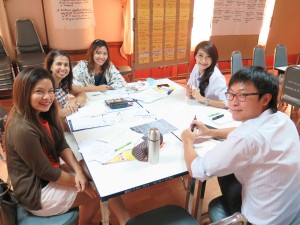 One of the key recommendations from the Bangkok’s ‘Policy Dialogue on Food and Nutrition Security and the ASEAN Integrated Food Security (AIFS) Framework in Thailand’ held on 31 March 2015 which ASEAN SAS co-organized in collaboration with the Department of Agriculture and the Office of Agricultural Economics, Ministry of Agriculture and Cooperatives is the need for capacity development of government officials and to strengthen coordination mechanism among relevant stakeholders to ensure effective implementation of relevant food and nutrition security policies and strategies in Thailand.
One of the key recommendations from the Bangkok’s ‘Policy Dialogue on Food and Nutrition Security and the ASEAN Integrated Food Security (AIFS) Framework in Thailand’ held on 31 March 2015 which ASEAN SAS co-organized in collaboration with the Department of Agriculture and the Office of Agricultural Economics, Ministry of Agriculture and Cooperatives is the need for capacity development of government officials and to strengthen coordination mechanism among relevant stakeholders to ensure effective implementation of relevant food and nutrition security policies and strategies in Thailand.
Adopted by the ASEAN leaders in 2014, the AIFS Framework (2015-2020) was developed as a response to the need for an integrated approach and multi-stakeholder efforts towards long-term food and nutrition security in the ASEAN region. In line with the project strategy to enable ASEAN Member States to implement the AIFS Framework at national level, ASEAN SAS works with Thai government to strengthen capacity of its personnel on food and nutrition security in order to develop and implement effective policies and strategies for addressing food and nutrition security in Thailand.
By ASEAN Sustainable Agrifood Systems Team, Thailand

